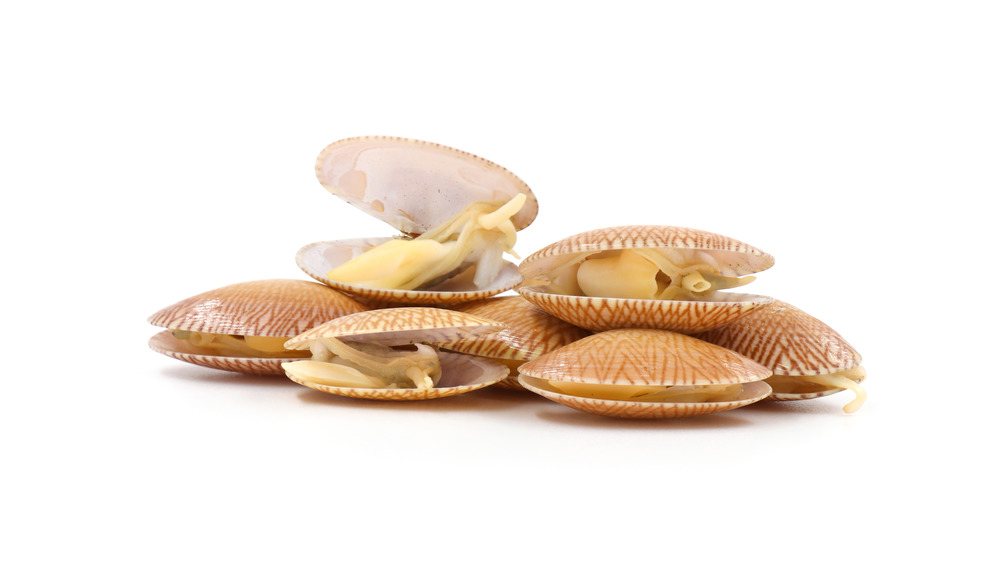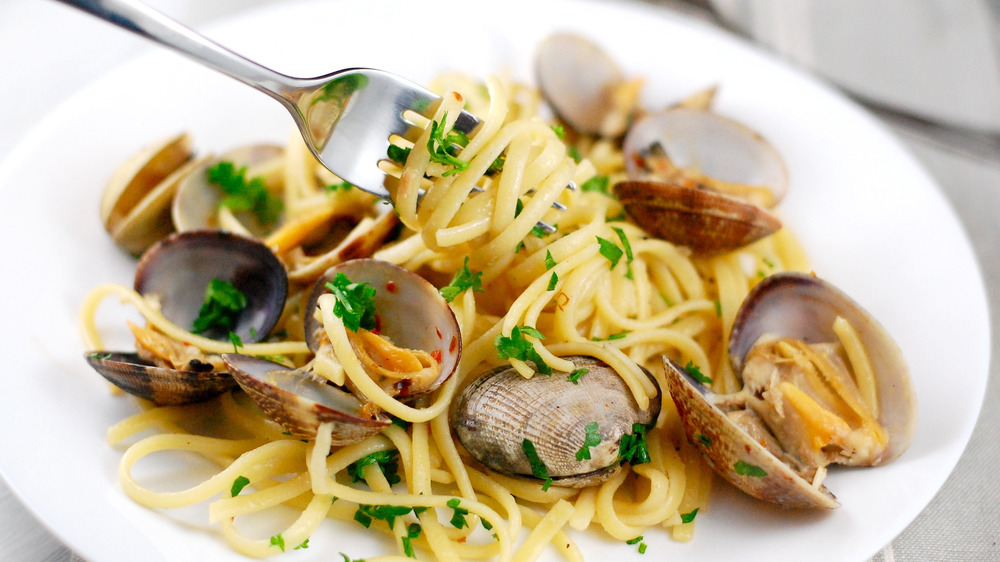You Should Never Eat Dead Clams. Here's Why
Nothing can strike up nostalgic memories like getting together for a clambake or enjoying some clams after a day at the beach. Whether you love them grilled, baked, or in a chowder, an order of clams can make anyone smile, and one of the only things more fun than eating these bivalves is catching them. According to Edible Jersey, one of the easiest ways to harvest clams involves taking a small rake and bucket out to the shoreline with you during low tide. Once you find a patch of clams, you can run your tool through the sand, lift them up into your bucket, and start planning dinner!
Once you get home and sort through your clams, you want to make sure you haven't accidentally scooped up any ill or dead bivalves. According to Edible Jersey, you can identify dead or sick clams if they easily fall open — a healthy clam puts up a solid fight, and you need a special knife to shuck the shell open. The dead clams most likely died for a reason. According to the British Colombia Center for Disease Control, shellfish like clams naturally build up a collection of bacteria and toxins through the way they ingest food — hepatitis A and norovirus infections run rampant through the seafood and can spread to you if you decide to eat infected clams. With this risk in place, how can you know if your shellfish won't harm you?
Telltale signs of infected clams
If you find a dead clam among your live specimens, don't tempt fate and eat it — if it died due to a disease it carried, it may easily pass the same illness on to you, and cooking won't destroy a virus (via the British Colombia Center for Disease Control). You won't want to put that clam anywhere near your mouth. According to The New York Times, you can easily tell if a shellfish has gone bad due to the smell — one whiff of the dead clam could make you lose your appetite altogether. This smell may come from the decomposition of the animal, or it may come from something even more gross.
If you do decide to ingest a dead clam, you may get more than you bargained for. Clams that contain hepatitis A or norovirus came in contact with the disease due to ingesting raw sewage (via the British Colombia Center for Disease Control). Make sure all of your clams put up a good fight and have some kick left in them before you cook them (via Edible Jersey). Once you separate out all the duds, feel free to prepare the good clams however you like. Just make sure to cook them thoroughly to avoid any risks of food poisoning (via British Colombia Center for Disease Control). As long as you remain cautious, you can always enjoy fresh clams and take in those nostalgic flavors when the opportunity strikes.

